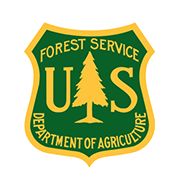Single Publication
Could not determine your location.
Hermits Peak and Calf Canyon BAER
Unit Information
Incident Contacts
- BAER InformationPhone:970-200-6195Hours:8am-8pm
- BAER InformationPhone:707-853-4243
- Santa Fe National Forest Public AffairsEmail:Phone:505-438-5320
USFS BAER Archaeologists Assess Cultural Resources in HPCC Burned Areas
Hermits Peak and Calf Canyon BAER
Publication Type: News -
FOREST SERVICE BAER ARCHAEOLOGISTS ASSESS CULTURAL RESOURCES IN HERMITS PEAK-CALF CANYON BURNED AREAS
BAER Archaeologists assess post-fire effects to cultural resources such as flooding and debris-flows within the Hermits Peak-Calf Canyon burned areas. Cultural resources include archaeological sites, historic sites, and traditional cultural properties/sacred sites. Cultural resources are non-renewable, and they are an important piece of our shared cultural heritage. Archaeologists on the BAER team assess and recommend BAER emergency stabilization treatments and actions to prevent the destruction and reduce damage to these resources from rainstorm events such as flash floods and debris flows.
In the photo below, BAER Specialist Jana Comstock (Santa Fe National Forest Archaeologist) is gathering data from a burned cultural resources site in the Upper Mora River Watershed area of the Hermits Peak-Calf Canyon Fire perimeter:

In this next photo, BAER Specialist Nikki Berkebile (Santa Fe National Forest Archaeologist) is using the Survey123 data collection program to document this burned cultural resources site in the Upper Mora River Watershed area of the Hermits Peak-Calf Canyon Fire perimeter:

This last photo is an overview of a burned area in the Upper Mora River Watershed within the Hermits Peak-Calf Canyon Fire perimeter. The photo shows a mosaic burn pattern. Mosaic burn patterns are characteristic arrangements of burned vegetation left by a fire as it has passed a particular burned area. In wildland fires, burn patterns are influenced by topography, wind direction, length of exposure, and type of fuel. They can be described by severity and intensity within a stand of trees or groups of vegetation.


 InciWeb
InciWeb